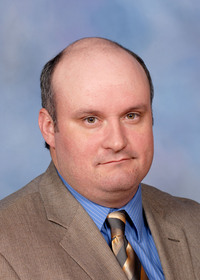Information Possibly Outdated
The information presented on this page was originally released on March 23, 1998. It may not be outdated, but please search our site for more current information. If you plan to quote or reference this information in a publication, please check with the Extension specialist or author before proceeding.
Forestry Programs Target African-Americans in MS
MISSISSIPPI STATE -- Idle land does not benefit the owners, the community or the state, but recent forestry programs taught African-Americans how to profit from better management of their underused timberland.
An idea that originated with the Marion County Forestry Association resulted in programs that reached almost 300 minority landowners in three counties: Marion, Jefferson Davis and Walthall.
"Land offers so much potential for the owners. It is important not to leave land idle and unproductive," said Brad Horton, Marion County Extension agent. "We wanted to address many issues landowners need to consider related to timber production and marketing."
Dr. Glenn Hughes, associate Extension forestry specialist in Ellisville, said almost 70 percent of Mississippi's timberland is owned privately and a significant portion is owned by minorities. Some tracts of land may have been out of production for years and have timber ready for harvest.
"One major issue we needed to address for the African-American community is the absence of wills, resulting in multiple owners with no clear title to the land," Hughes said. "Buyers that would pay top dollar for the timber will not bid on tracts with potential ownership problems. There is simply too much timber on the market to justify locating a dozen owners -- often spread across several states -- for permission to harvest."
Hughes said he hoped to increase awareness of forestland as a significant family asset and make owners more aware of the importance of wills. While trees will grow on idle land, a forestry plan is a more profitable option.
Environmental issues were another factor owners needed to consider.
"To protect their land, owners should require loggers to follow Best Management practices, or BMPs," Hughes said. "Have a professional forester establish a streamside management zone to protect streams and check for evidence of endangered species."
Chester Thigpen of Bay Springs, who in 1994 became the first African-American to win National Tree Farmer of the Year, was the keynote speaker at two of the county meetings. Thigpen explained how his family farm was converted to profitable timber. He encouraged the landowners to consider future generations as they make decisions about their land use.




